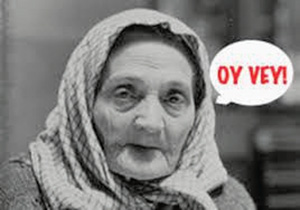
In the average synagogue, there are only a few instances during Shabbat morning services in which most or all congregants stop chatting. It usually happens during the musaf repetition, rabbi’s sermon and weekly announcements. It also happens during the Mourner’s Kaddish.
Showing respect during the Mourner’s Kaddish is important because mourners deserve maximum support and understanding. In fact, if it is early in the day and you cross paths with a mourner, do not greet them with a “Good Morning” greeting because they might misconstrue it as a crass and insensitive “Good Mourning” wish. There is nothing good about having to mourn but, if you are in mourning, then there is something good about saying the Mourner’s Kaddish.
The Mourner’s Kaddish is an approximately 2,000-year-old prayer traditionally recited in memory of the deceased. Ideally, the prayer should be recited three times a day, during Shacharit, Mincha and Maariv and it is required for those mourning a deceased parent, spouse, sibling or child. It is customary to recite the Mourner’s Kaddish for a parent for an entire year and thereafter to do so annually on the yahrzeit (Hebrew anniversary) and Yom Kippur (during the Yizkor service). Other than eating, sleeping and breathing, it might be the only thing a mourner does every single day for an entire year. (Yes, technically, there are other things that a person might do every single day like blinking, thinking and self-loathing.)
The Mourner’s Kaddish was composed in Aramaic (which is why it sounds different than many other prayers) and some scholars suggest that it was originally recited following a rabbi’s sermon. (No, it was not recited to mourn the loss time wasted listening to a lousy sermon). Some scholars contend that some point the prayer was referred to as the Orphan’s Kaddish and was recited by children for their deceased parents. Eventually, the prayer’s official name was broadened to include all mourners.
One tricky aspect of the Mourner’s Kaddish is coordinating recitals among multiple mourners. On any given shabbat in any given shul, one is likely to find at least two people who need to say Kaddish. In that event, an important issue invariably arises: who should take the lead? There are no hard and fast rules and there does not necessarily need to be a lead, but sometimes it can help. This is true especially for new mourners or those davening in a shul that is not their own. It is like when a professional sports team is on the road playing an away game or a rock band is out touring in a new venue. Under those circumstances, the unchartered waters of an unfamiliar setting can make the Mourner’s Kaddish recitation awkward, uncomfortable and even stressful. (Yes, other things in life can be awkward, uncomfortable and stressful like introducing your romantic interest to your nosy, overly-judgmental and innately-disapproving parents who only want to discuss whether your romantic interest has any doctors, lawyer or renowned rabbis in their lineage.) When a mourner is feeling lonely and/or unsure, it is in those moments that a leader is needed, someone to start the Kaddish and set the tone, sort of like a marathon pacesetter.
Bear in mind that saying the Mourner’s Kaddish is a serious matter and the recitation should be made in only appropriate circumstances. In other words, if your favorite professional sports team loses an important game, do not say Kaddish (even if it is a sudden-death playoff game). If your favorite rock (or Klezmer) band breaks up, do not say Kaddish (even if you are a die-hard fan). If the stock market plummets, do not say Kaddish (even if the market falls into a death spiral). If your favorite television show is cancelled, do not say Kaddish (even if it is The Walking Dead). If your favorite restaurant stops making your favorite dish, do not say Kaddish (even if the dish is to die for).
Another critical component of the Mourner’s Kaddish is the audience response. A clear, loud and heartfelt “Amen” is the best way to show Kaddish-saying mourners that you care. To them, each “Amen” means “We see you, we feel for you and we mourn with you.” So, during Mourner’s Kaddish, do not start gossiping about a (i) renegade kiddish, (ii) controversial breakaway minyan or (iii) junior congregation coup d’etat. Instead, be a mensch and say “Amen.”
Final thought: From a very selfish, Darwinian perspective, it is better to say Kaddish for someone else than to have someone else say it for you.
By Jon Kranz










